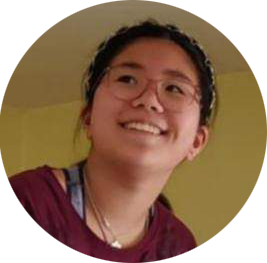Bill Belew has raised 2 bi-cultural kids, now 34 and 30. And he and his wife are now parenting a 3rd, Mia, who is 8.
I had an opportunity to read about Bill’s dad on his post “Great Lesson I Learned from a Father of Six Children – Heart Abnormality”. My dad is a Father of five children, that too all daughters. To be a father of five daughters in Nepal comes with a huge responsibility. Dad has to play multifaceted role after the birth of daughter until their marriage, everything from raising us, keeping us in discipline, protecting us, fulfilling our needs, and on top of that becoming a very good dad. Things would have been different if we were a son, because a father has more responsibility and pressure at home until his daughter gets married; at least in Nepali culture. We all five sisters call our dad ‘Dai”, meaning brother in Nepali. It is because we grew up with our aunts and they called our dad ‘Dai”, brother in Nepali and we followed them.
My dad is very kind hearted man in this world who played multifaceted role. If I have to remember him, I would remember him as an absent dad; even though he was around us most of the time during our childhood. I know how much my dad loves me and I do love him the same way but I don’t know why, I never have same feelings for my dad as I have for my mum.
My dad was born in countryside and got married with my mom at very young age. It was an arranged marriage as it was/is a part of tradition in Nepali culture. My three sisters including me were born in the same rural countryside where my father lived before he migrated to nearby town for our better education. My eldest sister is Shan. I was born after her. I have other three younger sisters, Isti, Etu, and Ksha. Ksha came very late in this world therefore there is a huge age difference between my youngest sister Ksha and Etu.
My dad has a government job. When we were kids, he was around us all the time but he never showed affection towards us, at least I never felt that. I don’t remember a day spending quality time with him, going out, or vacationing with him. It was always mom who did all those things that is why I call my dad an absent dad. I never complained and he never left a room to complain in fulfilling our other needs such a good schooling and other demands but when it came to spending quality time with him when we were in need, it never happened. Indeed he sent me to one of the top university in Nepal and he paid for all my tuition and fees.
It was only after my youngest sister Ksha was born, I saw him spending time with her. He used to take her out, played with her, took her for movies and picnic. Later on he started showing some kind of attachment and affection, and wanted to take outside and wanted to spend some time but it was too late for him, at least from my point of view because I didn’t feel that I am in need of that at that point in my life when I was already in high school. I am not sure how my other sisters feel about this. He is a great father, but I feel I got more love and care from my grandfather than from my dad. I don’t blame my dad for all these things; some of his actions were because of the Patriarchic society of Nepal because he was completely changed after moving to another town from his hometown.
The biggest and surprising change I saw in him was after the birth of my sister’s son, his first grandson. He was a completely different man. I never felt or saw him like that with children and babies before that. My dad is a hardworking, responsible, honest, and a great provider whom I miss a lot as I haven’t seen him since Feb 2010. I only talk with him over the phone and on Skype. If I have to say one single lesson that I learned from my dad, it would be do right thing at a right time and when needed. I never felt a love and affection from my dad when I was a kid and when I was in need. He kind of started that later on but I felt it was little late but I love my dad very much. I love you Dad.
Click here to visit my site.
By: Shadow
Talk to Bill and others about their experiences raising bi-cultural Japanese-American kids.
